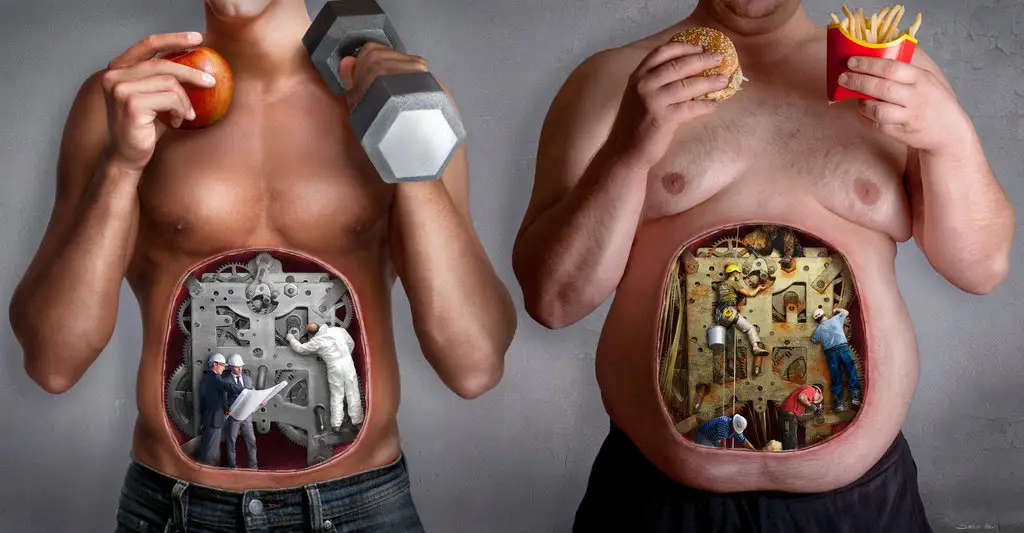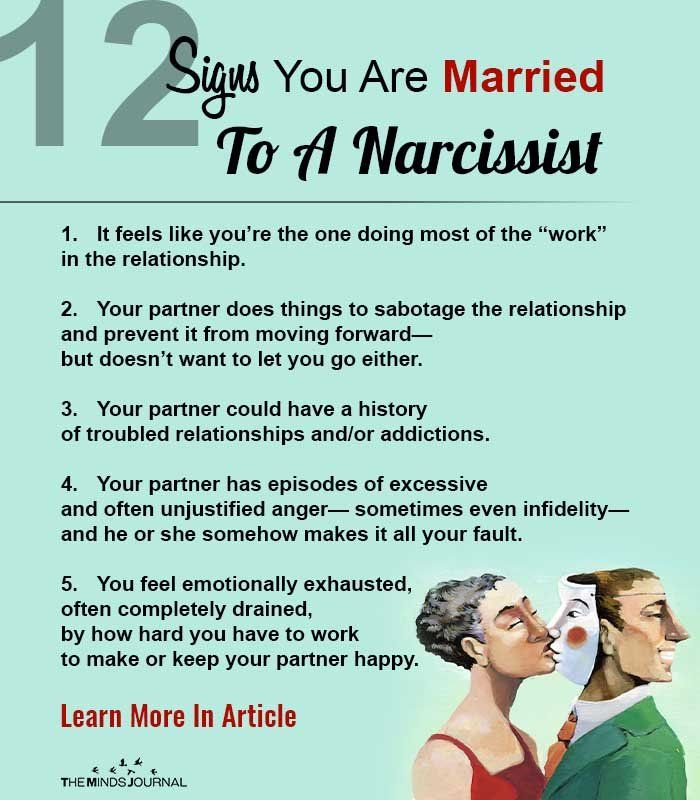Losing the will to live meaning
5 signs of giving up the will to live
A lack of motivation or willpower can do a lot of damage to our lives, but most of us only suffer it in small bouts from time to time.
But what if giving up on life resulted in death?
Sadly, in some cases, it can happen and it’s called ‘psychogenic death’.
As intense as it is, psychogenic death can be prevented as long as people know what signs to look out for.
And, even though it’s been around for a long time, new research has shed some light about how these unexplainable deaths might happen in even healthy people.
In this article, we’re going to find out more about psychogenic death, from the science behind it to the stages that contribute to it.
What is psychogenic death?
Many of us will remember reading stories of old couples who die within hours of each other (from grief), and films often show people dying simply from a broken heart.
It seems that their loved one’s death leaves them with nothing to hold on to, no purpose or reason to live anymore, so they let go and give in to death.
Is it that their experience has such an impact on them that they can’t seem to find an escape, leaving only one fatal option to end their pain?
Unfortunately, there’s no explanation or physical reason for their death – it’s an emotional and mental death which is also called ‘giving-up-itis’ (GUI).
“The term give-up-itis was coined by medical officers during the Korean War (1950-1953). They described it as a condition where a person develops extreme apathy, gives up hope, relinquishes the will to live and dies, despite the lack of an obvious physical cause.”
Dr. John Leach, a senior researcher at the University of Portsmouth, identified the stages that happen during GUI during his research into psychogenic death:
“The study found that people can die in as little as three days in the wake of a traumatic life event if they cannot see a way to overcome it. The term ‘give-up-itis’ was invented during the Korean War, when those being held prisoner ceased to speak, stopped eating and died quickly.
”
He also mentions that psychogenic death isn’t considered to be the same as suicide, nor is it linked to depression.
So what causes people to die from giving up on life? If it’s not to do with depression, are there other scientific reasons for them to give up so drastically? Read on to find out the causes of psychogenic death.
What causes psychogenic death?
It’s generally believed that trauma is the main cause of psychogenic death because the sheer amount of stress leads the person to accept death as a way of coping.
Many cases of psychogenic death can be seen in prisoners of war who have faced a lot of physical and psychological damage – accepting death is their way to end the trauma and pain.
It’s also been noted for people who have undergone surgery and believed that it was unsuccessful. In one case, a man still had back pain after surgery and he thoroughly believed that the surgery hadn’t worked.
He died the next day and the toxicology, autopsy, and histopathologic showed no signs as to the cause of death.
What’s the science behind psychogenic death?
According to Dr. Leach, although these types of deaths seem unexplainable, it may be something to do with a change in a frontal-subcortical circuit of the brain, more specifically the anterior cingulate circuit.
This particular circuit is responsible for higher-level cognitive functions which include things like decision making, motivation, and goal-oriented behavior, and Dr. Leach says:
“Severe trauma might trigger some people’s anterior cingulate circuit to malfunction. Motivation is essential for coping with life and if that fails, apathy is almost inevitable.”
This circuit is also associated with dopamine, which is essential for regulating stress reactions and promoting motivation.
Because of this imbalance and the changes in the anterior cingulate, the person can lose the will to even survive because their motivation levels hit an all-time low.
Even basic needs such as eating, bathing, and interacting with others appear to be given up on, and people end up forming a vegetative state of mind and body.
The 5 stages of giving-up-itis
These are the 5 stages that a person goes through when they experience a psychogenic death, and it is important to note that intervention can take place at each stage and potentially save the person from dying.
1) Social withdrawal
The first stage of GUI tends to happen straight after psychological trauma, for example in prisoners of war. Dr. Leach believes that this is a coping mechanism – resisting outward emotional engagement so that the body could focus on its emotional stability.
If left unaddressed, the person will start to experience extreme withdrawal from outside life and may experience the following:
- Listlessness
- Apathy
- Reduced emotions
- Self-absorption
2) Apathy
Apathy is a state which happens when a person loses all interest in socializing or having a life. Put simply, they stop caring about everyday things, even their passions, and interests.
Signs of apathy include:
- A lack of energy or motivation to do normal everyday activities
- Having zero interest in experiencing new things or meeting new people
- Little to no emotion
- Not caring about their problems
- Relying on other people to plan their life out
Interestingly, apathy doesn’t fall under the category of depression, even though both have similar effects. In the case of apathy, the person just doesn’t feel anything; their whole motivation towards life is lost.
In the case of apathy, the person just doesn’t feel anything; their whole motivation towards life is lost.
The human organism naturally starts to shut down after trauma and extreme disappointment, but this doesn’t have to be the end of the line.
The best way to reverse it is to often look at your “driver’s manual” about what is motivating you at the deepest level.
You may find scripts and narratives there which you hadn’t realized are locking you into toxic habits.
In this eye-opening video, the shaman Rudá Iandé explains how easy it is to get locked into living a life that’s not even our own – and the way to turn it around!
3) Aboulia
The third stage in psychogenic death Aboulia which makes a person lose all desire to look after themselves.
Dr.Leach explains:
“An interesting thing about aboulia is there appears to be an empty mind or a consciousness devoid of content. People at this stage who have recovered describe it as having a mind like mush, or of having no thought whatsoever.

In aboulia, the mind is on stand-by and a person has lost the drive for goal-directed behaviour.”
Signs of aboulia include:
- Being emotionally indifferent
- Losing the ability to speak or move
- Not having any goals or plans for the future
- A lack of effort and productivity
- Avoiding socializing with others
4) Psychic akinesia
In this phase, people become in a state of existence but they’re barely holding on. They’re completely apathetic by this point and may even lose the ability to feel intense pain.
Signs of psychic akinesia include:
- A lack of thought
- Motor deficit (the inability to move)
- Insensitivity to extreme pain
- Reduced emotional concern
In this state, people can be found lying in their waste, or not even reacting when being physically abused – they basically become a shell of a person.
5) Psychogenic death
The final stage in GUI is death itself and it normally happens 3-4 days after psychic akinesia kicks in.
Dr. Leach uses the example of cigarettes smoked by prisoners in concentration camps. Cigarettes were very valuable, often used to barter for food or other essentials, so when a prisoner smoked their cigarette, it was a sign that death was closing in.
“When a prisoner took out a cigarette and lit it, their campmates knew the person had truly given up, had lost faith in their ability to carry on and would soon be dead.”
He goes on to explain that even though it seems like there’s a little spark of life left in the smoking of the cigarette, it’s actually the opposite:
“It appears briefly as if the ’empty mind’ stage has passed and has been replaced by what could be described as goal-directed behaviour. But the paradox is that while a flicker of goal-directed behavior often takes place, the goal itself appears to have become relinquishing life.”
The prisoner achieved their goal, and could then go on to die. This stage includes the complete disintegration of the person, and very little can be done to pull them back to life.
Different types of psychogenic death
Psychogenic death isn’t a one size fits all situation. There are many reasons why people might start giving up the will to live, and what affects one person might affect another in a much more harmful way.
Also, trauma isn’t the only cause of psychogenic deaths – things such as strong beliefs in black magic or deprivation of affection can also make people give up on life.
Let’s look into this in a bit more detail:
Voodoo deaths
One of the reasons why voodoo deaths can be classed as psychogenic deaths is because, for some people, the belief in black magic is extremely strong.
So strong that they can become fixated on it if they believe they’ve been cursed, and in time this can cause death because the person expects it to come true.
In the case of voodoo deaths, people who feel that they’re cursed often experience incredible levels of fear (anyone who has played the ouija board will know what I’m talking about) but also curses that come out of hatred and jealousy from others.
In 1942, physiologist Walter B. Cannon published his finding on voodoo related deaths:
“In it, he relays the concept of psychogenic death some scientists have come to refer to as the Hound of Baskerville effect whereby individuals convinced of some bad omen or curse, literally stress their bodies to the point of death.”
And, whilst not everyone believes in black magic, there are still many countries where it’s seen as a serious subject – and one to fear. This belief then makes it all the more real, and the person begins to shut down out of fear or stress.
Hospitalism
The term hospitalism was mainly used in the 1930s as an explanation for children who died after spending long periods in the hospital.
Pediatricians believed that the children passed away, not through being malnourished or sick, but from a lack of attachment to their mother, and as a result very little affection.
The intense separation and feeling of abandonment from their family had such a profound effect on the children that they began to resist basic needs such as eating or drinking – basically giving up on life.
Can it be cured?
Although it sounds pretty hopeless, psychogenic death can be prevented as long as intervention happens as quickly as possible.
Often it’s necessary to dig back into what’s driving us and the lies we’ve unconsciously bought into from society and our conditioning.
Is it the need to be positive all the time? Is it a sense that life will go your way if you’re just a “good” person and the ensuing disappointment when that didn’t happen?
As this powerful free video explains, there’s a way to accept the limits of our control in life while still empowering us to find meaning in what we can control.
Indeed, one of the most important factors in prevention is to give the person reasons to live, as well as helping them gain back their perception of having full control over their life.
And, of course, whatever trauma they experienced in the past needs to be dealt with professionally so that the person can begin to heal their wounds and put the past firmly behind them.
Dr. Leach says:
“Reversing the give-up-itis slide towards death tends to come when a survivor finds or recovers a sense of choice, of having some control, and tends to be accompanied by that person licking their wounds and taking a renewed interest in life.”
Other things that might help someone who is experiencing psychogenic death include:
- Having a social life
- Increasing healthy habits
- Having future goals
- The use of medication in some cases
- Addressing dysfunctional beliefs
As Ideapod’s founder, Justin Brown, explains in his article on 7 powerful reasons to live:
“You have incredible value just for being you. You don’t need to achieve anything to have value. You don’t need to be in a relationship to have value. You don’t need to be successful, make more money, or be what you may judge as a good parent. You just have to keep on living.”
For people suffering from psychogenic death, sometimes the most important thing is to remember their self-worth and their value in this world.
Their past experiences will have affected them greatly, but with love, support, and a lot of encouragement, they can be brought back to life (quite literally).
Regaining your personal power
One of the biggest reasons that people get tired of life and die is that they give up and lose their personal power.
Begin with yourself. Stop searching for external fixes to sort out your life, deep down, you know this isn’t working.
And that’s because until you look within and unleash your personal power, you’ll never find the satisfaction and fulfillment you’re searching for.
I learned this from the shaman Rudá Iandê. His life mission is to help people restore balance to their lives and unlock their creativity and potential. He has an incredible approach that combines ancient shamanic techniques with a modern-day twist.
In his excellent free video, Rudá explains effective methods to achieve what you want in life and to find joy once again.
So if you want to build a better relationship with yourself, unlock your endless potential, and put passion at the heart of everything you do, start now by checking out his genuine advice.
Here’s a link to the free video again.
Takeaway
Psychogenic death still needs more research into how many people it affects around the world, and if there are any other changes in the brain’s functioning that can cause people to give up on life.
But, one thing is for sure, our brains have an incredible amount of power, so much so that it can create mechanisms for survival which actually lead to our demise instead.
With more understanding of psychogenic deaths, and with the work of Dr. Leach on GUI, psychologists and doctors alike may be able to identify what’s going on sooner rather than mistakenly terming people as depressed.
With this, there is the hope that unnecessary deaths could be prevented and people suffering from the condition will be able to regain their spark and motivation for life again.
Why losing the will to live can be deadly within three weeks
Losing the will to live is deadly, scientists believe, after finding people can die within three weeks simply because they have given up on life.
A new review by Dr John Leach at the University of Portsmouth, is the first to widely study the condition known as ‘psychogenic death’ and define its five stages.
Sometimes termed ‘give-up-itis’ it usually follows an emotional shock from which a person thinks there is no mental escape, which makes them dangerously apathetic about their own existence.
If not stopped, death usually occurs three weeks after the first stage of withdrawal, but can happen even sooner. However, the syndrome is not widely accepted by scientists.
“Psychogenic death is real,” said Dr Leach. “It isn’t suicide, it isn’t linked to depression, but the act of giving up on life and dying usually within days, is a very real condition often linked to severe trauma.”
Dr Leach studied reports from concentration camp victims who often lost the will to live in the horrific conditions Credit: RON CARDY / Rex FeaturesPsychogenic death, also known as voodoo death, was first defined in 1942 by Harvard psychologist Walter Cannon, who noticed that it could often be triggered by the fear of supernatural consequences to broken taboos. Tribes people who believed they were cursed would often be found dead within a matter of days.
Tribes people who believed they were cursed would often be found dead within a matter of days.
Cannon also termed the ‘fight or flight’ response and believed in psychogenic death that the flight response took over but the sufferer could not act on it, leading to a fatal chain of events.
Five stages
By reviewing case reports from concentration camp inmates, shipwreck survivors, and even Jamestown colonists, Dr Leach, found that the first stage is social withdrawal in which sufferers exhibit lack of emotion, listlessness and indifference and become self-absorbed.
Next a deep apathy sets in where a person no longer cares about self-preservation and instead sinks into a deep demoralising melancholy.
The third phase is ‘aboulia’ in which people stop speaking and give up eating and washing which leads to stage four, psychic akinesia, where they no longer even feel extreme pain.
In one case study used in the review a young woman suffered second-degree burns while visiting the beach, because she hadn’t removed herself from the sun’s heat.
Dr Leach said: “An interesting thing about aboulia is there appears to be an empty mind or a consciousness devoid of content.
“People at this stage who have recovered describe it as having a mind like mush, or of having no thought whatsoever. In aboulia, the mind is on stand-by and a person has lost the drive for goal directed behaviour.”
The final stage is death. In concentration camps, people who reached this stage were often known to be near death by fellow prisoners when they started smoking their valuable hidden cigarettes.
Dr Leach said: “When a prisoner took out a cigarette and lit it, their campmates knew the person had truly given up, had lost faith in their ability to carry on and would soon be dead.”
Reversing 'give-up-itis'
However, death is not inevitable in someone suffering from give-up-itis and can be reversed by interventions including physical activity which releases the feel-good chemical dopamine.
The research suggests that the psychological decline occurs from a change in an area of the brain responsible for motivation.
He said: “Severe trauma might trigger some people’s anterior cingulate circuit to malfunction. Motivation is essential for coping with life and if that fails, apathy is almost inevitable.”
“Reversing the give-up-itis slide towards death tends to come when a survivor finds or recovers a sense of choice, of having some control, and tends to be accompanied by that person licking their wounds and taking a renewed interest in life,” he said.
The research was published in the journal Medical Hypotheses.
Will to live: how to gain the desire to live
October 05, 2019
According to statistics, depression is one of the most common psychological diseases of mankind. There are a lot of reasons for depression, and for each they are individual. But the symptoms are often similar, and the main one is the loss of meaning and the will to live.
Of course, a similar condition is not always associated with clinical depression. There are less extreme conditions, often they cover the head after some traumatic event. And to survive them, in general, is not easier. nine0003
And to survive them, in general, is not easier. nine0003
Most likely, everyone has experienced this state at least once in their life: when hands drop by themselves. You live on the machine, you wander along the route "work - home - work - home", and all you want to do is lie on the bed and look at the ceiling. What kind of happiness can we talk about here ?
If you are lucky and this condition has bypassed you - congratulations, you can close the article. If you have encountered it at least once and are afraid that you will encounter it again, or if you or your loved one is in it right now, we hope that the book that we recommend reading today will help you take the first step towards improvement. nine0003
Viktor Frankl's book "Saying Yes to Life: A Psychologist in a Concentration Camp" is not easy both in content and in the history of writing. Frankl wrote based on his observations of himself and the people around him, collected during his years in a concentration camp.
Quote from the summary:
It was a fierce struggle for existence, even between the prisoners themselves. A merciless struggle for a daily piece of bread, for self-preservation, for oneself or for the closest people. Most of the prisoners lost heart and went down physically and mentally. But there were a few who did not lose their human dignity. They always found a kind word and the last piece of bread for their comrades in misfortune. Thanks to the stubbornness of the spirit, such people retained the ability to protect their souls from the influence of a terrible environment. nine0025
Concentration camps are a very dark and sad page in the history of mankind and an extremely traumatic life experience. While in the concentration camp, Frankl noticed that some people break down under the onslaught of what is happening, fall into apathy and eventually die. Others, on the contrary, find the strength to cling to life from day to day.
What is the difference between the first and second? What contributes to the awakening of the will to live? What happens beyond the physical survival of man? nine0010
Frankl answers all these questions in his book, consistently tracing the moral evolution of a person who ended up in a concentration camp.
Every prisoner went through several phases and changes of character.
- The first phase - the shock of arrival at camp , the most acute primary reaction, with which people coped in different ways.
- Second phase — transformation of character and state . Each person during a long stay in a concentration camp goes through a state of apathy, devaluation, irritability
Some people are not able to overcome this phase, it is here that the spiritual support is completely lost.
- However, those who manage to pass this stage enter the third phase of moral liberation .
***
After reading V. Frankl's book, you will not only find the answer to the question "How to restore the will to live?" when hands go down. In addition to practical psychological value, the book also has historical value, in the sense that it introduces the unique life experience of the great humanist and philosopher of the twentieth century. nine0003
nine0003
Of course, we recommend reading such a work in its entirety. However, getting to know the key ideas of the book in advance, before you even go to the store and buy your personal copy, a short summary will help you. You can read the summary both on our website (click the link above!), and in a convenient application. The first 7 days you can do it completely free , and you can unsubscribe at any time. Given that it takes an average of 20-30 minutes to read one summary, just imagine how much useful you will learn in a week! nine0003
Read our blog on Yandex.Zen
Existential despair: what does the lack of goals in life lead to
214,499
Know yourself Loneliness
If every person were temporarily deprived of his daily duties - the need to go to work, take care of household chores, take care of children - the whole world would soon sink into a nightmare, says American psychotherapist John Cilimparis. Most people would wallow in obsessive thoughts on completely unnecessary topics. They would drive themselves into a frenzy by asking questions that have no answers. nine0003
Most people would wallow in obsessive thoughts on completely unnecessary topics. They would drive themselves into a frenzy by asking questions that have no answers. nine0003
For example, fruitless arguments about life and death — that we are all born from some dark and unclear void, and after death we return to it. These heavy thoughts invariably lead to the fact that a person begins to ask questions like "Who am I?" and “Why am I here?” driving yourself into an intellectual dead end.
Deprived of all life goals, people would find themselves in such an existential void that anxiety would simply throw them off balance. Our mind does not tolerate idleness, perceives it as a real punishment. nine0003
Experiencing existential despair, we come face to face with our own mortality, an unbearable awareness of the finiteness of our existence
Thanks to them, we maintain balance and do not indulge in endless thoughts about our ephemeral, and possibly meaningless, existence.
A former patient once told me that, despite her anxiety and depression, she was forced to think about the future because of her two children. Every prom she attended, every football game, every musical rehearsal, every new milestone in her children's lives, made her look to the future with hope, not fear. nine0003
The older we get, the more important children and grandchildren are to us. They allow us to focus on their youth rather than our own aging. For this woman, motherhood for some time became the meaning of life. It helped her to control herself and cope with psychological problems.
If, with age, a person continues to live aimlessly and disorganized, most likely, he will begin to mentally turn to the past more and more often. He will be tormented by obsessive thoughts about past mistakes, losses, unsuccessful decisions. Existential despair creeps up unnoticed and forces us to constantly analyze the past, although this does not give us anything. nine0003
Complete immersion in oneself
All-consuming despair can push a person to solipsism - complete immersion in oneself, in one's desires, fears and experiences. He develops the unfounded belief that his "I" is the only measure of truth. This is an inadequate perception of reality distorted by egoism.
He develops the unfounded belief that his "I" is the only measure of truth. This is an inadequate perception of reality distorted by egoism.
Uncertainty, lack of control and unpredictability are simply unbearable for a person who is completely immersed in himself. The egocentric mind is often hostile to everything new, and getting out of the comfort zone becomes almost impossible. nine0003
It is important to remember that it is not the future that scares us, but our inability to control it. Plunging into ourselves, we find ourselves in an endless carousel of neurotic experiences about the future, which cause constant anxiety.
As we sink into ourselves, we begin to exaggerate our own importance.
It begins to seem that our personal problems are more important than the problems of the rest of the inhabitants of the planet, and therefore everyone around us is constantly watching us and criticizing our actions. Or it seems to us that we are completely unique and no one in the world suffers as much as we do. Or that God himself took up arms against us personally and deliberately makes our life unbearable. You know what? You're not that important, period. nine0003
Or it seems to us that we are completely unique and no one in the world suffers as much as we do. Or that God himself took up arms against us personally and deliberately makes our life unbearable. You know what? You're not that important, period. nine0003
So, we have come to the conclusion that the aimlessness and disorganization of everyday life can be dangerous for the psyche. When we live aimlessly, our mind is idle, not getting any tasks to make it work.
A few months ago, I went on a small mountain hike alone in Santa Monica, west of Los Angeles. For some reason, I felt loneliness especially acutely, I began to feel sorry for myself a little. When I reached the highest point of the route and looked down at the magnificent view that opened before me, something seemed to switch in my head. nine0003
Standing in silence on the top of the mountain, as if isolated from the whole world, I shed tears and felt some kind of despair
It was a very unpleasant feeling - heavy and sad. All life's anxieties seemed to me much more serious than before, from the usual fear of old age to doubts about whether I turned off the air conditioner when I left the house. It felt like this new despair was eating me up inside.
All life's anxieties seemed to me much more serious than before, from the usual fear of old age to doubts about whether I turned off the air conditioner when I left the house. It felt like this new despair was eating me up inside.
This sudden change in consciousness unsettled me and completely disoriented me. But there was something comical in all this. It was as if violins and cellos were playing in the background, while I was being sucked into some kind of swamp of absurdity. nine0003
These experiences made me stop and think. Now I myself have come face to face with the realization of how limited my possibilities are and how short my stay in this world is. And last week, while playing tennis, I got injured - a torn calf muscle. I had to cancel all appointments with patients for the next few days. I wore orthopedic shoes and moved around the house on crutches.
Temporarily deprived of my daily duties and out of my usual routine, left alone with crutches, I again felt the same despair. And it inspired me to write this article. nine0003
And it inspired me to write this article. nine0003
10 tips to avoid existential despair
1. Find a goal for yourself
Any goal, not necessarily noble or intellectual. Let it be something you enjoy doing for yourself or for others. Immerse yourself in your chosen cause with maximum dedication and unyielding determination. If you don't like your current job, look for other job opportunities. Do not be afraid to take on new projects that cause you genuine enthusiasm. nine0003
2. Avoid long periods of idleness
Plan your time wisely. Regular mental exercise is very important for the health of the mind and psyche. There is no remote control in life, you will have to “switch” the channels yourself. Don't lie mindlessly on the couch.
3. Focus on those areas of life where you can really do something useful
For example, relationships with a spouse or partner, raising children, relationships with relatives, work, a healthy lifestyle. nine0003
4.
 Set goals and challenge yourself every day
Set goals and challenge yourself every day Sometimes it's good to deal with a conflict that you've been avoiding for years. It is also helpful to overcome yourself by trying something new - something that scares you.
5. Don't expect guarantees
Some uncertainty about the future is inevitable and normal.
6. Don't put off everything until later
Take action. Be prepared to make decisions and stick to them.
7. Do not isolate yourself from the world
Try to have a heart to heart with someone at least once a day. Remember that most people do not tolerate loneliness well. Talk to someone, support a friend or acquaintance who is having a hard time with a kind word and a smile.
8. Don't torment yourself with global philosophical questions that can't be answered easily
You don't need to unravel the secrets of the universe right now. Be inquisitive and curious, but at the same time learn to cope with the unknown and uncertainty.














